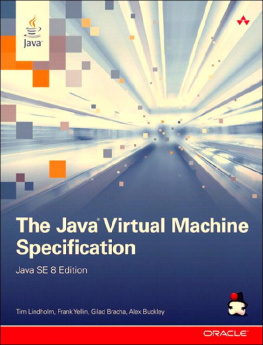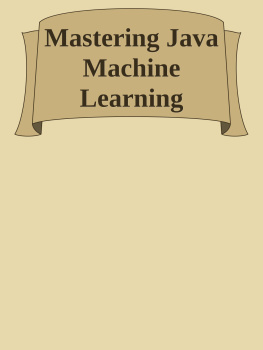Kamath - Mastering Java Machine Learning
Here you can read online Kamath - Mastering Java Machine Learning full text of the book (entire story) in english for free. Download pdf and epub, get meaning, cover and reviews about this ebook. year: 2017, publisher: Packt Publishing, genre: Children. Description of the work, (preface) as well as reviews are available. Best literature library LitArk.com created for fans of good reading and offers a wide selection of genres:
Romance novel
Science fiction
Adventure
Detective
Science
History
Home and family
Prose
Art
Politics
Computer
Non-fiction
Religion
Business
Children
Humor
Choose a favorite category and find really read worthwhile books. Enjoy immersion in the world of imagination, feel the emotions of the characters or learn something new for yourself, make an fascinating discovery.
Mastering Java Machine Learning: summary, description and annotation
We offer to read an annotation, description, summary or preface (depends on what the author of the book "Mastering Java Machine Learning" wrote himself). If you haven't found the necessary information about the book — write in the comments, we will try to find it.
Kamath: author's other books
Who wrote Mastering Java Machine Learning? Find out the surname, the name of the author of the book and a list of all author's works by series.
Mastering Java Machine Learning — read online for free the complete book (whole text) full work
Below is the text of the book, divided by pages. System saving the place of the last page read, allows you to conveniently read the book "Mastering Java Machine Learning" online for free, without having to search again every time where you left off. Put a bookmark, and you can go to the page where you finished reading at any time.
Font size:
Interval:
Bookmark:
Copyright 2017 Packt Publishing
All rights reserved. No part of this book may be reproduced, stored in a retrieval system, or transmitted in any form or by any means, without the prior written permission of the publisher, except in the case of brief quotations embedded in critical articles or reviews.
Every effort has been made in the preparation of this book to ensure the accuracy of the information presented. However, the information contained in this book is sold without warranty, either express or implied. Neither the authors, nor Packt Publishing, and its dealers and distributors will be held liable for any damages caused or alleged to be caused directly or indirectly by this book.
Packt Publishing has endeavored to provide trademark information about all of the companies and products mentioned in this book by the appropriate use of capitals. However, Packt Publishing cannot guarantee the accuracy of this information.
First published: June 2017
Production reference: 1290617
Published by Packt Publishing Ltd.
Livery Place
35 Livery Street
Birmingham B3 2PB, UK.
ISBN 978-1-78588-051-3
www.packtpub.com

Authors
Uday Kamath
Krishna Choppella
Reviewer
Samir Sahli
Prashant Verma
Commissioning Editor
Veena Pagare
Acquisition Editor
Divya Poojari
Content Development Editor
Mayur Pawanikar
Technical Editor
Vivek Arora
Copy Editors
Vikrant Phadkay
Safis Editing
Project Coordinator
Nidhi Joshi
Proofreaders
Safis Editing
Indexer
Francy Puthiry
Graphics
Tania Dutta
Production Coordinator
Arvindkumar Gupta
Cover Work
Arvindkumar Gupta
Dr. Uday Kamath is a volcano of ideas. Every time he walked into my office, we had fruitful and animated discussions. I have been a professor of computer science at George Mason University (GMU) for 15 years, specializing in machine learning and data mining. I have known Uday for five years, first as a student in my data mining class, then as a colleague and co-author of papers and projects on large-scale machine learning. While a chief data scientist at BAE Systems Applied Intelligence, Uday earned his PhD in evolutionary computation and machine learning. As if having two high-demand jobs was not enough, Uday was unusually prolific, publishing extensively with four different people in the computer science faculty during his tenure at GMU, something you don't see very often. Given this pedigree, I am not surprised that less than four years since Uday's graduation with a PhD, I am writing the foreword for his book on mastering advanced machine learning techniques with Java. Uday's thirst for new stimulating challenges has struck again, resulting in this terrific book you now have in your hands.
This book is the product of his deep interest and knowledge in sound and well-grounded theory, and at the same time his keen grasp of the practical feasibility of proposed methodologies. Several books on machine learning and data analytics exist, but Uday's book closes a substantial gapthe one between theory and practice. It offers a comprehensive and systematic analysis of classic and advanced learning techniques, with a focus on their advantages and limitations, practical use and implementations. This book is a precious resource for practitioners of data science and analytics, as well as for undergraduate and graduate students keen to master practical and efficient implementations of machine learning techniques.
The book covers the classic techniques of machine learning, such as classification, clustering, dimensionality reduction, anomaly detection, semi-supervised learning, and active learning. It also covers advanced and recent topics, including learning with stream data, deep learning, and the challenges of learning with big data. Each chapter is dedicated to a topic and includes an illustrative case study, which covers state-of-the-art Java-based tools and software, and the entire knowledge discovery cycle: data collection, experimental design, modeling, results, and evaluation. Each chapter is self-contained, providing great flexibility of usage. The accompanying website provides the source code and data. This is truly a gem for both students and data analytics practitioners, who can experiment first-hand with the methods just learned or deepen their understanding of the methods by applying them to real-world scenarios.
As I was reading the various chapters of the book, I was reminded of the enthusiasm Uday has for learning and knowledge. He communicates the concepts described in the book with clarity and with the same passion. I am positive that you, as a reader, will feel the same. I will certainly keep this book as a personal resource for the courses I teach, and strongly recommend it to my students.
Dr. Carlotta Domeniconi
Associate Professor of Computer Science, George Mason University
Dr. Uday Kamath is the chief data scientist at BAE Systems Applied Intelligence. He specializes in scalable machine learning and has spent 20 years in the domain of AML, fraud detection in financial crime, cyber security, and bioinformatics, to name a few. Dr. Kamath is responsible for key products in areas focusing on the behavioral, social networking and big data machine learning aspects of analytics at BAE AI. He received his PhD at George Mason University, under the able guidance of Dr. Kenneth De Jong, where his dissertation research focused on machine learning for big data and automated sequence mining.
I would like to thank my friend, Krishna Choppella, for accepting the offer to co-author this book and being an able partner on this long but satisfying journey.
Heartfelt thanks to our reviewers, especially Dr. Samir Sahli for his valuable comments, suggestions, and in-depth review of the chapters. I would like to thank Professor Carlotta Domeniconi for her suggestions and comments that helped us shape various chapters in the book. I would also like to thank all the Packt staff, especially Divya Poojari, Mayur Pawanikar, and Vivek Arora, for helping us complete the tasks in time. This book required making a lot of sacrifices on the personal front and I would like to thank my wife, Pratibha, and our nanny, Evelyn, for their unconditional support. Finally, thanks to all my lovely teachers and professors for not only teaching the subjects, but also instilling the joy of learning.
Krishna Choppella builds tools and client solutions in his role as a solutions architect for analytics at BAE Systems Applied Intelligence. He has been programming in Java for 20 years. His interests are data science, functional programming, and distributed computing.
Samir Sahli was awarded a BSc degree in applied mathematics and information sciences from the University of Nice Sophia-Antipolis, France, in 2004. He received MSc and PhD degrees in physics (specializing in optics/photonics/image science) from University Laval, Quebec, Canada, in 2008 and 2013, respectively. During his graduate studies, he worked with Defence Research and Development Canada (DRDC) on the automatic detection and recognition of targets in aerial imagery, especially in the context of uncontrolled environment and sub-optimal acquisition conditions. He has worked since 2009 as a consultant for several companies based in Europe and North America specializing in the area of Intelligence, Surveillance, and Reconnaissance (ISR) and in remote sensing.
Font size:
Interval:
Bookmark:
Similar books «Mastering Java Machine Learning»
Look at similar books to Mastering Java Machine Learning. We have selected literature similar in name and meaning in the hope of providing readers with more options to find new, interesting, not yet read works.
Discussion, reviews of the book Mastering Java Machine Learning and just readers' own opinions. Leave your comments, write what you think about the work, its meaning or the main characters. Specify what exactly you liked and what you didn't like, and why you think so.

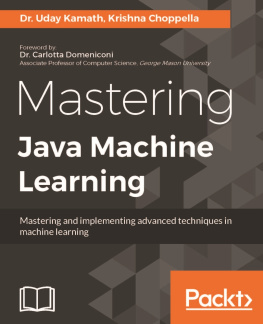
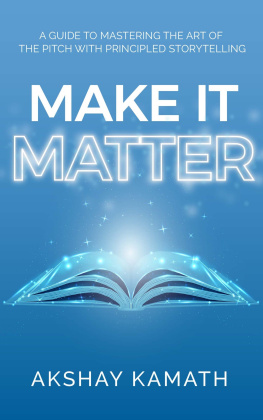
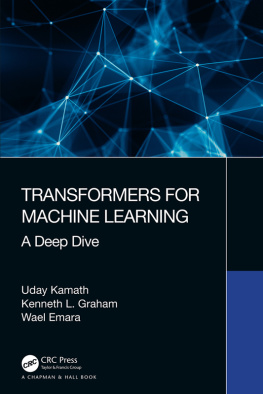
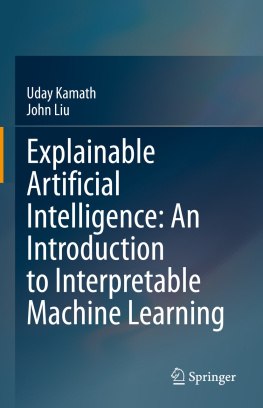

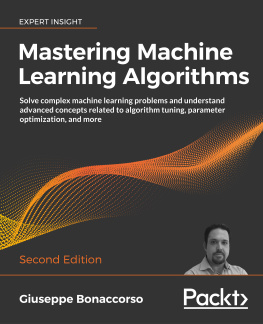
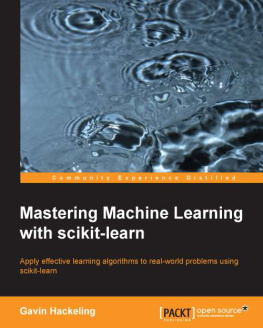
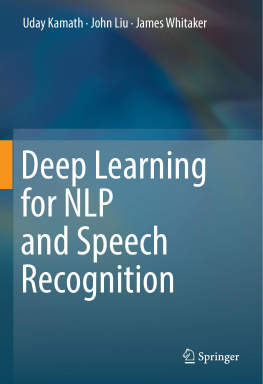
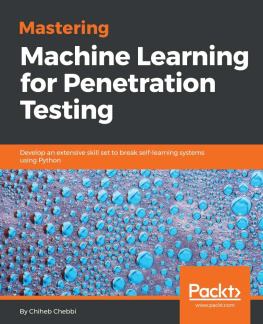
![Mark Wickham [Mark Wickham] - Practical Java Machine Learning: Projects with Google Cloud Platform and Amazon Web Services](/uploads/posts/book/119359/thumbs/mark-wickham-mark-wickham-practical-java.jpg)
